June Gardening Tips and To-Dos for the Pacific Northwest Region
June is here, bringing gorgeous garden blooms and signaling that summer is right around the corner. In the Pacific Northwest region, there are plenty of gardening tasks and tips to keep in mind. Whether you’re an experienced gardener or just starting out, I’ve got some June gardening tips and to-dos for your Pacific Northwest garden.
The days are not only getting warmer but they’re also getting longer. June is the last month of spring and there’s still plenty on the to-do list when it comes to keeping your garden healthy and beautiful.
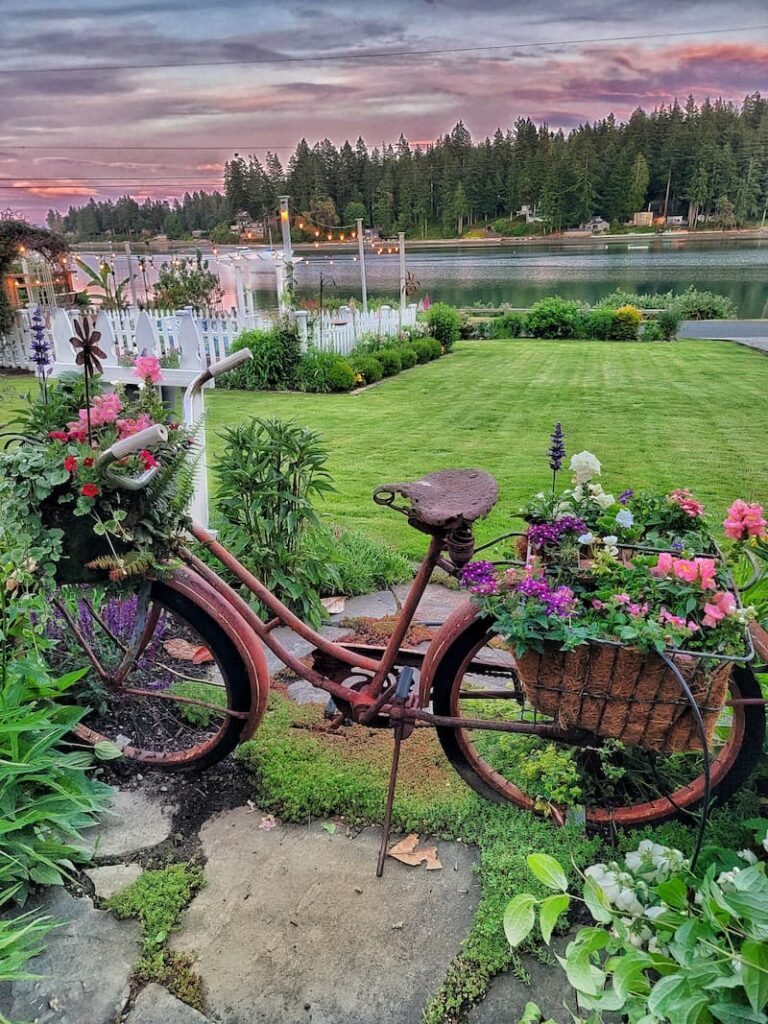
As an Amazon affiliate, I earn from qualifying purchases at no extra cost to you. My blog contains other affiliate links as well for your convenience. Click here to read my privacy policy.
I’m a self-taught hobby gardener, not a Master Gardener. Everything I share with you on my blog is my personal opinion and things that worked for me along the way.
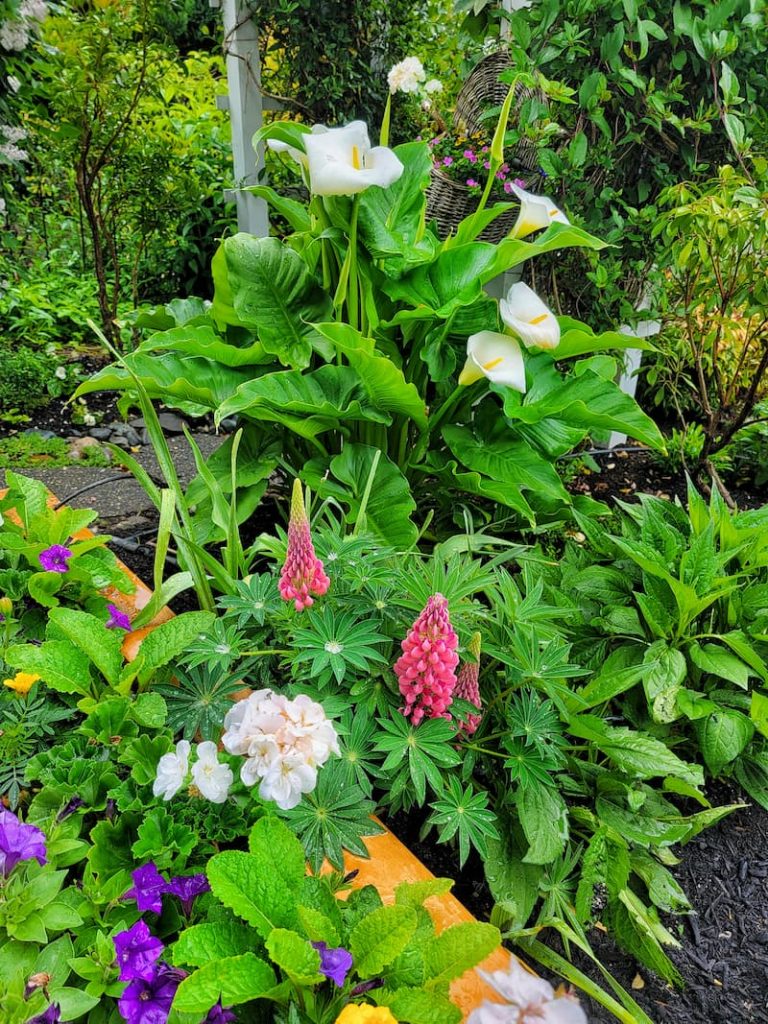
Unique Growing Conditions of the Pacific Northwest
As a gardener in the PNW, it’s easy to appreciate the unique growing conditions that our region has to offer.
The Pacific Northwest is known for its mild maritime climate. For the most part, we experience cooler summers, mild winters, and consistent rainfall throughout the year.
This makes the Pacific Northwest the perfect growing environment for a wide variety of plants, with a longer growing season compared to other parts of the country.
Plan Strategically With Excessive Moisture
Because of the abundant rainfall in the Pacific Northwest, proper drainage and soil composition are important factors to consider when gardening.
Excessive moisture can lead to root rot and other fungal diseases. Raised beds, well-draining soil, and strategic plant placement can help prevent waterlogging and keep your garden’s growing conditions optimal.
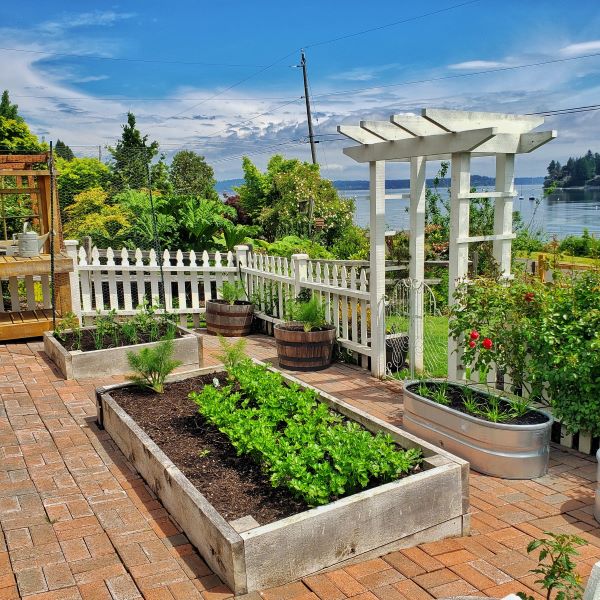
June Gardening Tips for the Pacific Northwest
Whether you’re a seasoned gardener or just starting out, these June “gardening by month” tips will help your garden thrive in the summer months. My tips are based on hardiness zone 8b so be sure to check your own gardening zone and make the necessary adjustments to this month’s timeline.
Keep reading for my best June gardening tips for the Pacific Northwest.
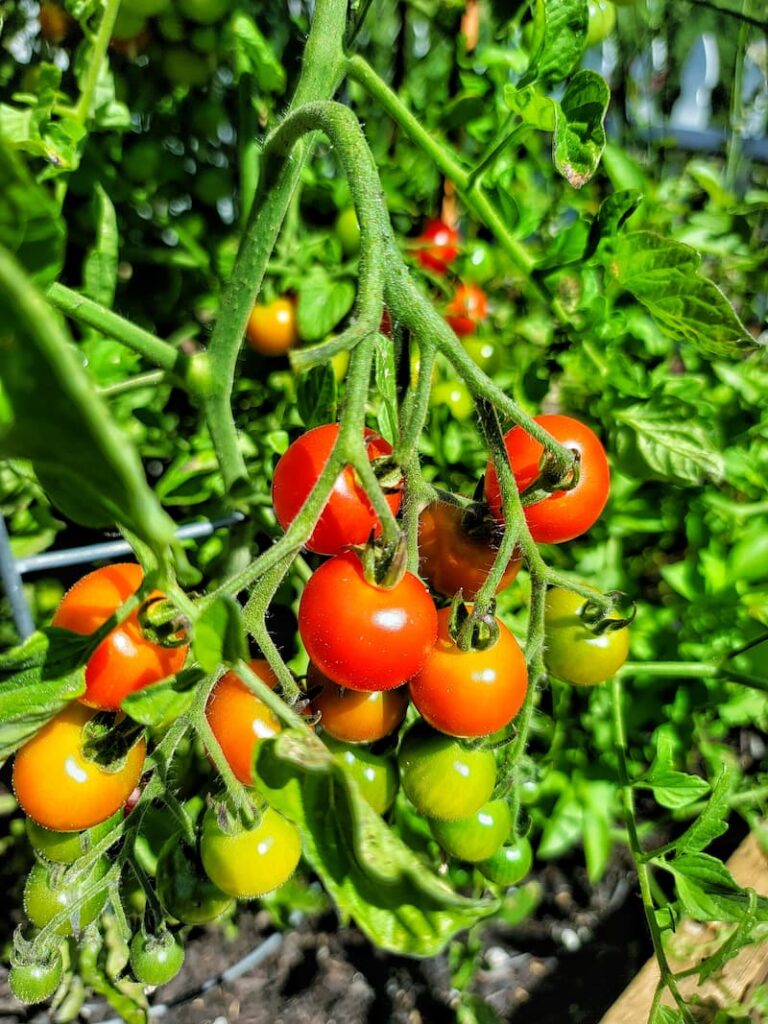
What to Plant in the Garden in June
June Vegetable Garden Planting
Can you plant fruits and vegetables in June? Yes, you can still plant certain fruits and vegetables in June, depending on your specific location and climate.
Mid-June is an ideal time to start planting fall and winter crops. You can also direct seed your summer crops, but it’s important to do it soon.
Consider planting the following in your Pacific Northwest vegetable gardens in June:
Plant tomatoes and eggplant when night-time temperatures have warmed up, and the soil temperature is above 60 degrees.
The end of June and early July is a good time to start seeds and plant transplants if you are going to grow a fall vegetable garden.
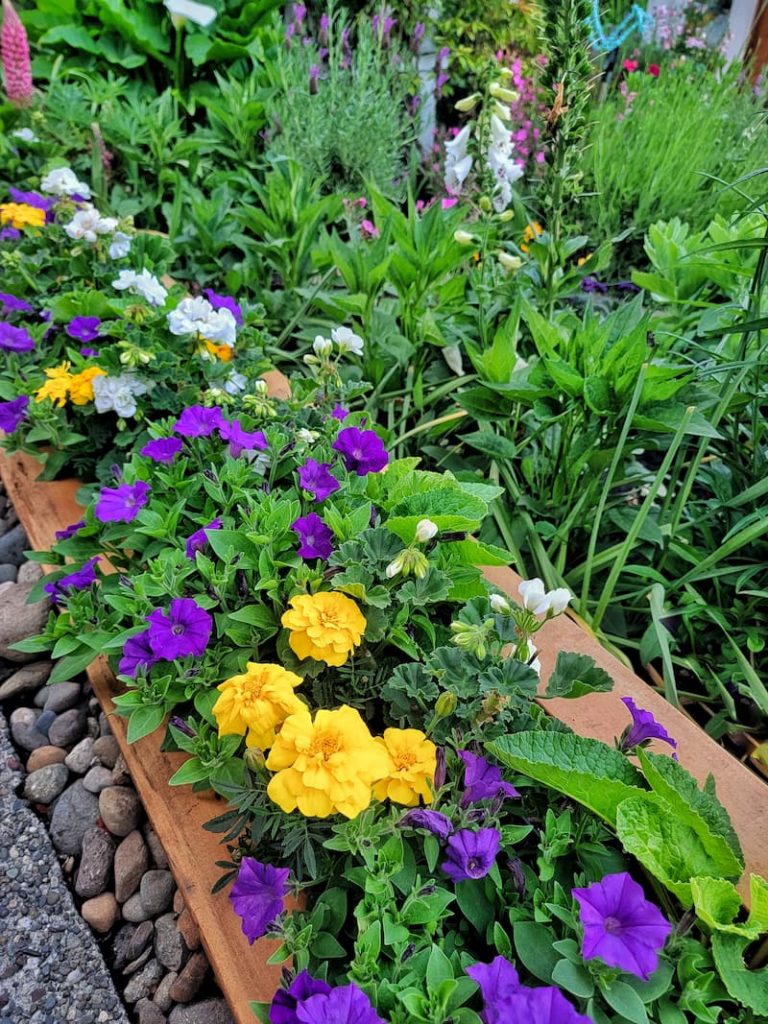
June Flower Garden Planting: Perennials
There are still plenty of perennials you can plant in the Pacific Northwest in the month of June.
The local nurseries or garden centers should still have a supply of perennials to choose from. Some favorites are Daylilies (Hemerocallis), Coneflowers (Echinacea), Black-eyed Susans (Rudbeckia), Shasta Daisies, Lavender (Lavandula), Russian Sage, and Astilbe.
June Flower Garden Planting: Annuals
The month of June is still a great planting time for colorful annuals to add a pop to your garden. Consider planting annuals like cosmos, nasturtiums, sunflowers, and petunias for vibrant summer blooms.
My June garden doesn’t seem to have a lot of perennials blooming right now, so planting annuals helps to bring color and fill in any spaces in the garden right now. Annuals can make an impact when planting in flower containers and window boxes.
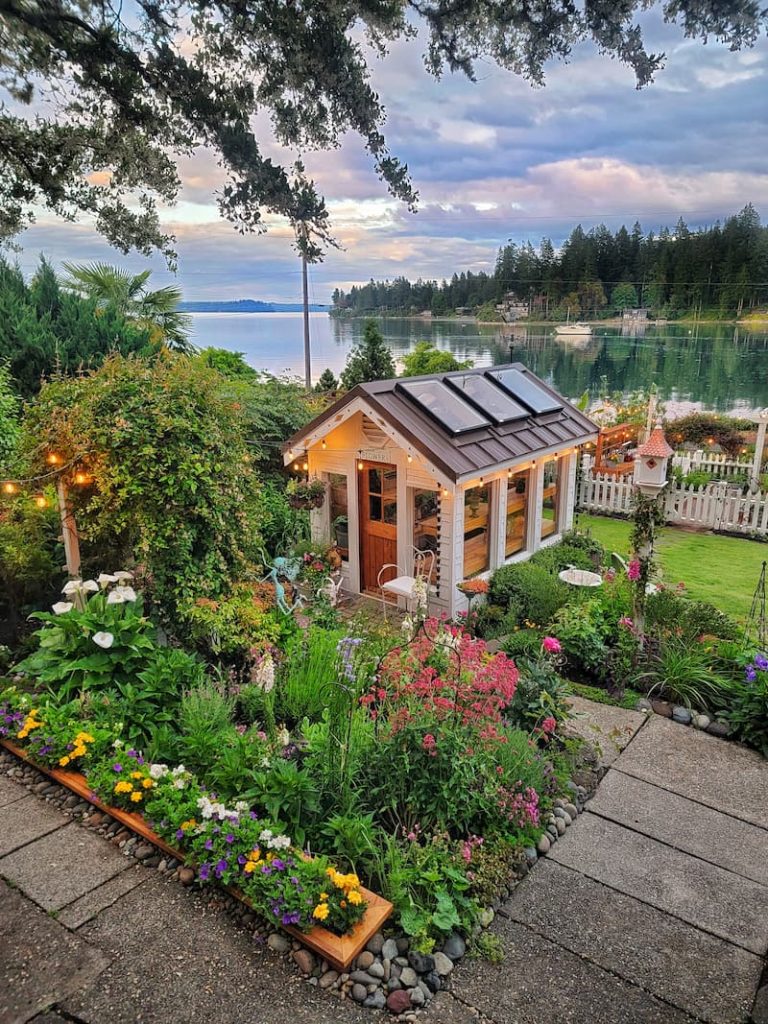
June Garden Maintenance for the Pacific Northwest
The month of June is a transition period for the Pacific Northwest.
This is the month that usually shifts from the rainy season to drier and sunnier days. While the frequency of rainfall may decrease, the soil will still retain moisture from previous months, providing essential hydration to plants.
Make Sure Your Plants are Getting Enough Water
Be sure that your plants receive the right amount of water during the warmer months. It’s important to strike a balance between watering, and being aware of changing weather conditions.
Gardeners can adjust their irrigation systems to accommodate the reduced rainfall, ensuring plants receive the right amount of moisture without overwatering.
If you have an irrigation system check it to make sure it’s in good working order. Test and run each system manually, for at least five minutes, to make sure there are no leaks or repairs that may be needed.
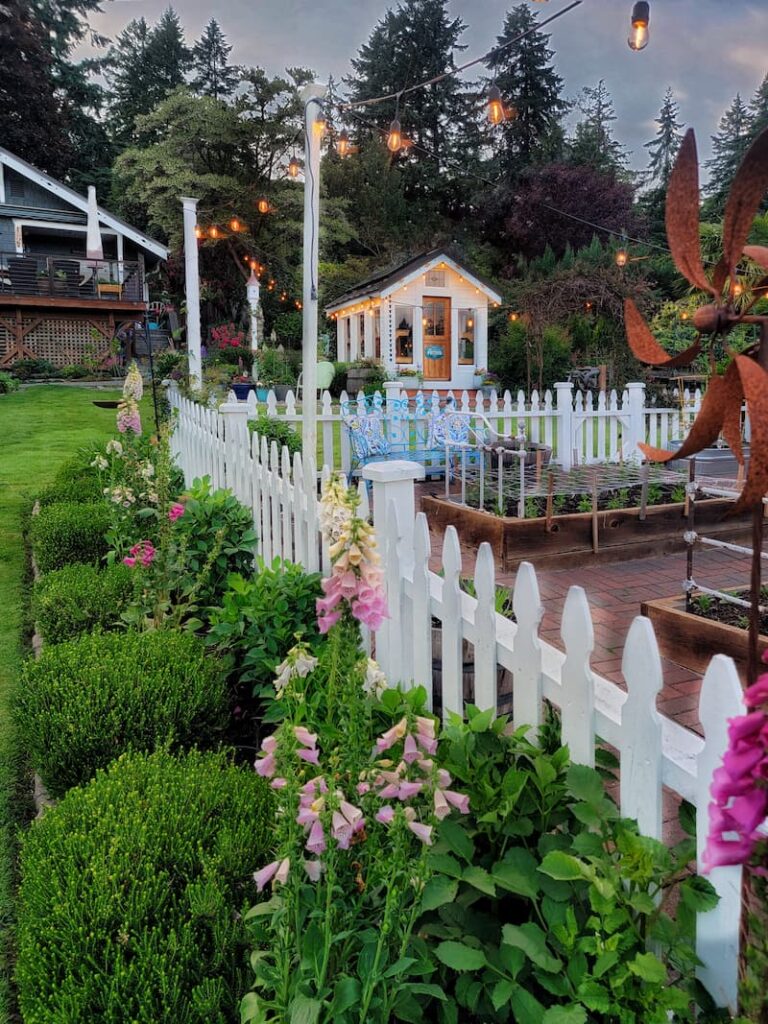
Newly planted trees and shrubs should be watered deeply every week or two until consistent rainfall in the fall season.
Provide about an inch of water per week to your flowers and shrubs. As early potatoes begin to die back, reduce watering. Change the water regularly in the birdbaths.
Soaker hoses and drip irrigation systems are a great way to water plants in your flower gardens deeply.
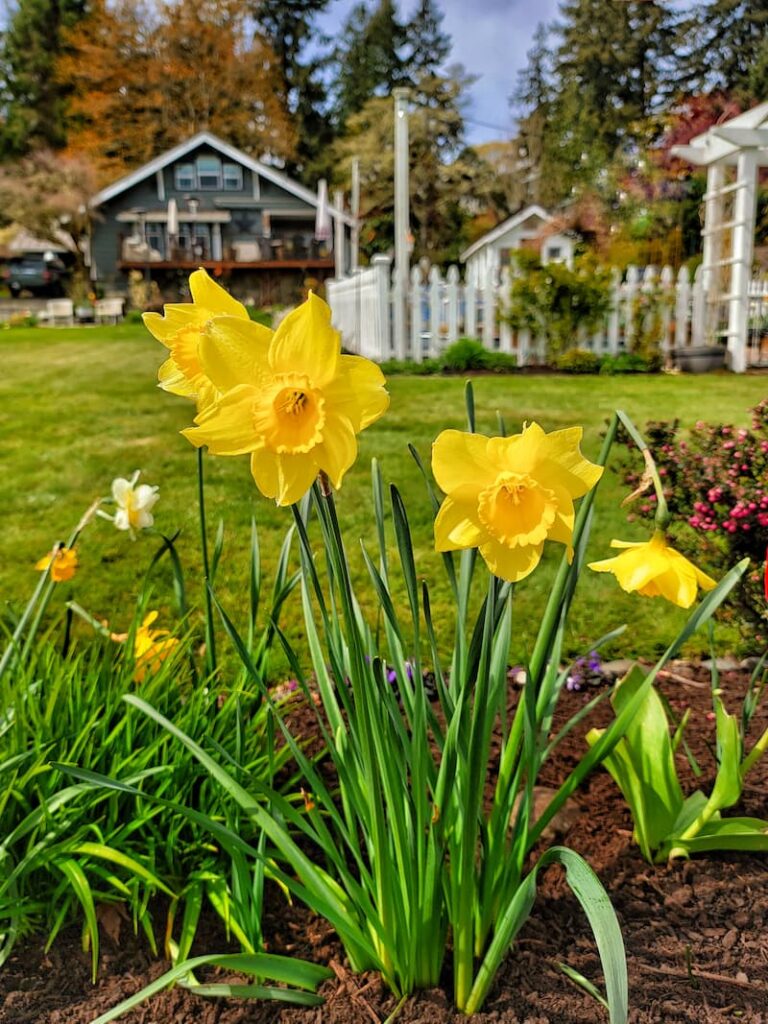
Divide Plants
What does the term “dividing perennials” mean?
Dividing perennials is a gardening technique that separates larger plants into smaller clumps and transplants them in different locations.
This is usually done when the plants in your garden have outgrown their space or become too large to manage.
If you hear the gardening terms dividing and splitting, they are essentially the same technique.
You can still divide perennials that aren’t early summer bloomers. Dividing perennials after blooming like primroses, can give you more plants in other areas of your garden.
It’s a good idea to divide daffodil clusters every few years to prevent overcrowding and for better blooming.
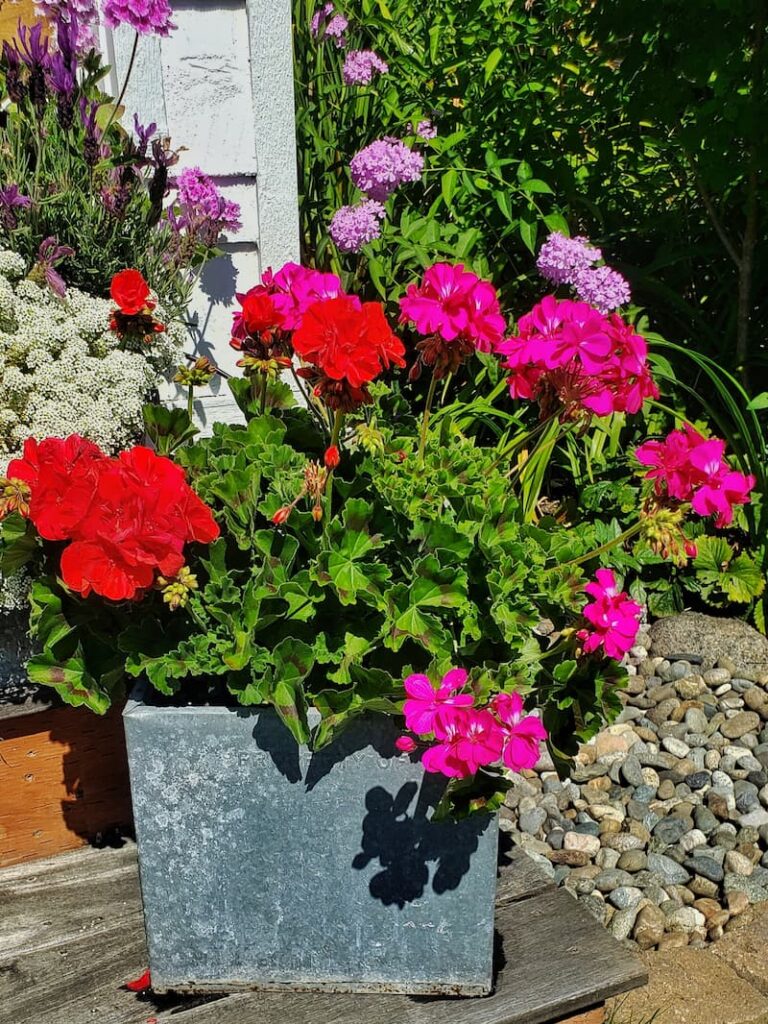
Pinch Your Annuals
There’s a simple garden technique called pinching that can create fuller, bushier plants, more blooms, and longer cut flower stems.
Cosmos, zinnias, dahlias, sweet peas, snapdragons, and other cut flowers benefit from pinching the central stem of the plant when they’re young, encouraging the plant to produce new side branches of a bushier plant and more blooms throughout the growing season.
Annuals like fuchsias, geraniums, and cosmos should be pinched back after they start to wilt and die off to prevent them from getting leggy.
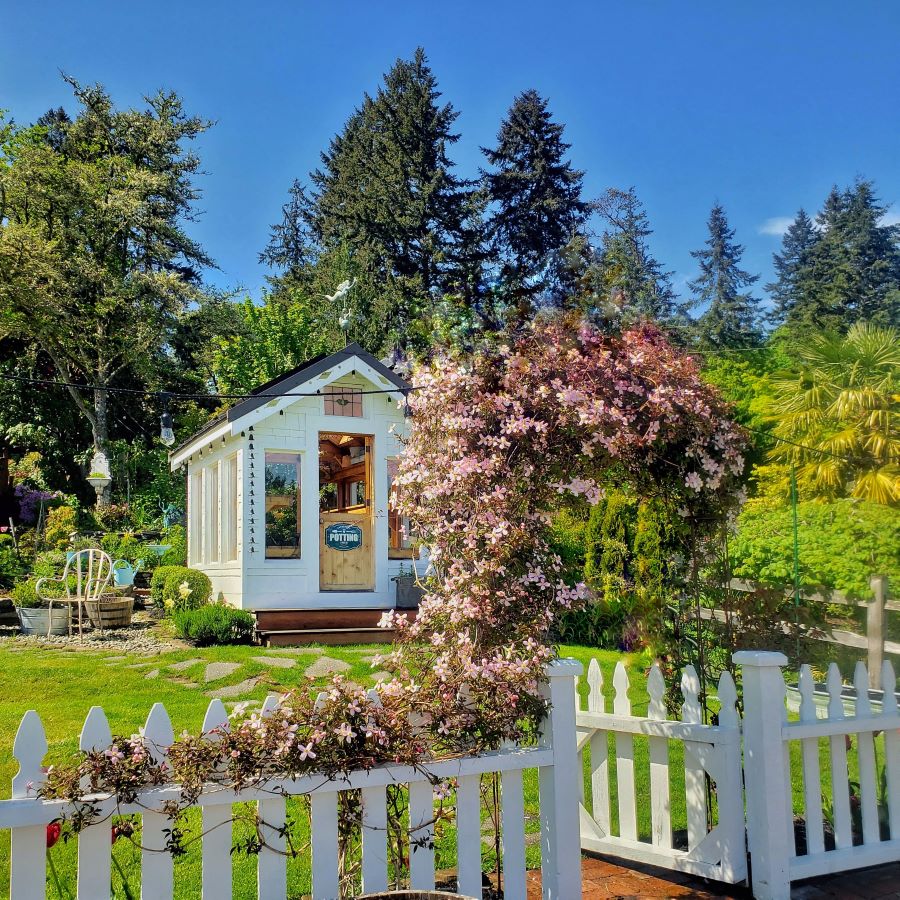
Prune and Deadhead
Snap off old flower heads from rhododendrons to redirect energy to the plant. Be careful not to injure new branches that may be emerging beneath the spent blooms.
Cut back azaleas by removing the outermost inch of new growth for bushier plants. Prune spring-blooming shrubs and trees, such as lilacs and crab apples, after they finish blooming.
Stop cutting asparagus and rhubarb at the end of the month, so they can rejuvenate for the next year.
You can prune evergreens anytime until late summer.
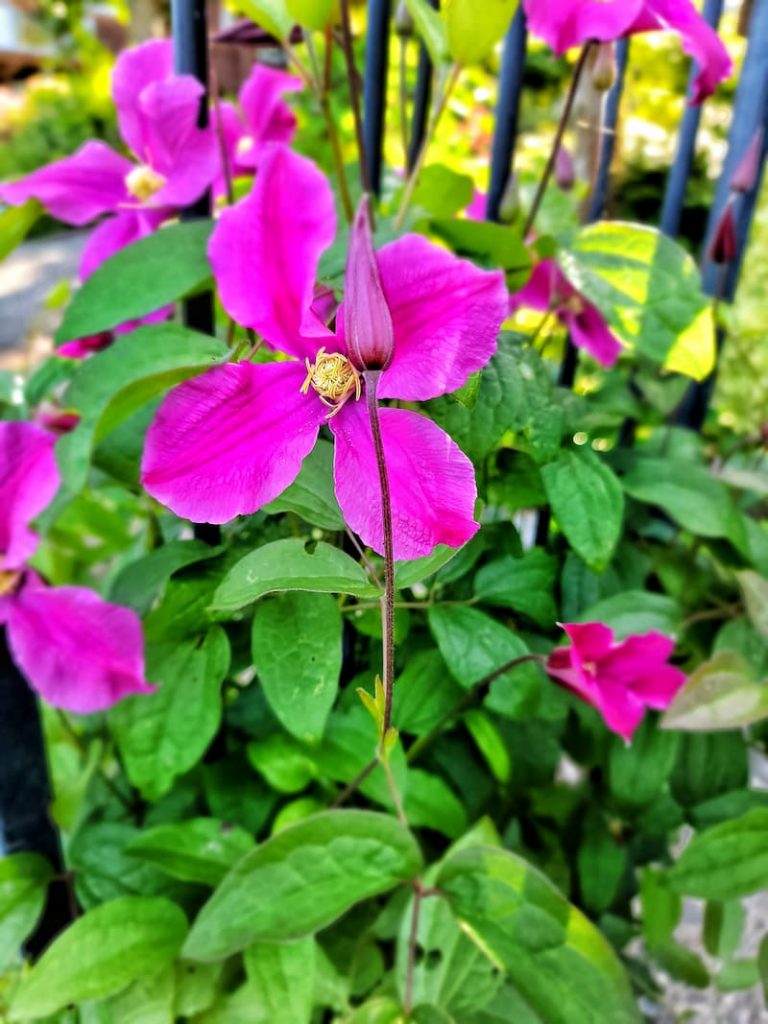
Vines like clematis, honeysuckle, and jasmine tend to become out of control this time of year. Try to cut back, train, or tie new shoots to the trellis or structure.
Deadhead spent blooms regularly to encourage continuous flowering.
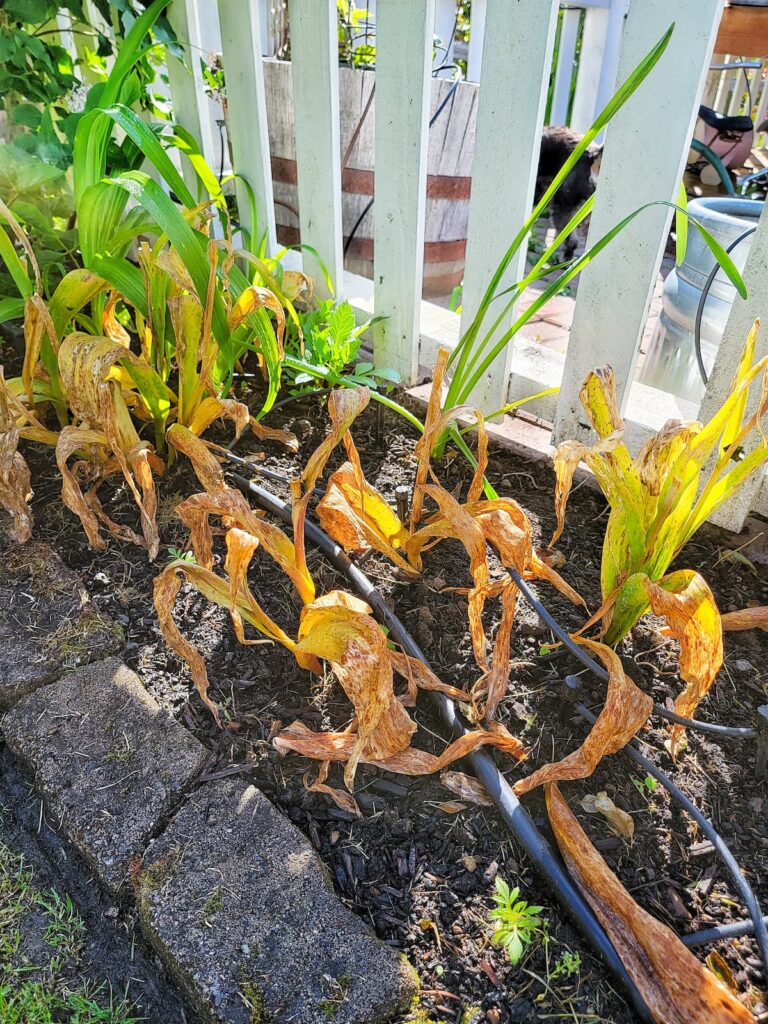
Spring Bulb Maintenance
Remove leaves from tulips, daffodils, and other spring-flowering bulbs once they turn brown and easily come out of the ground.
Dig up spring bulbs that did not grow well this season.
*Did you know that most tulips and hyacinths last only about 2-3 years?
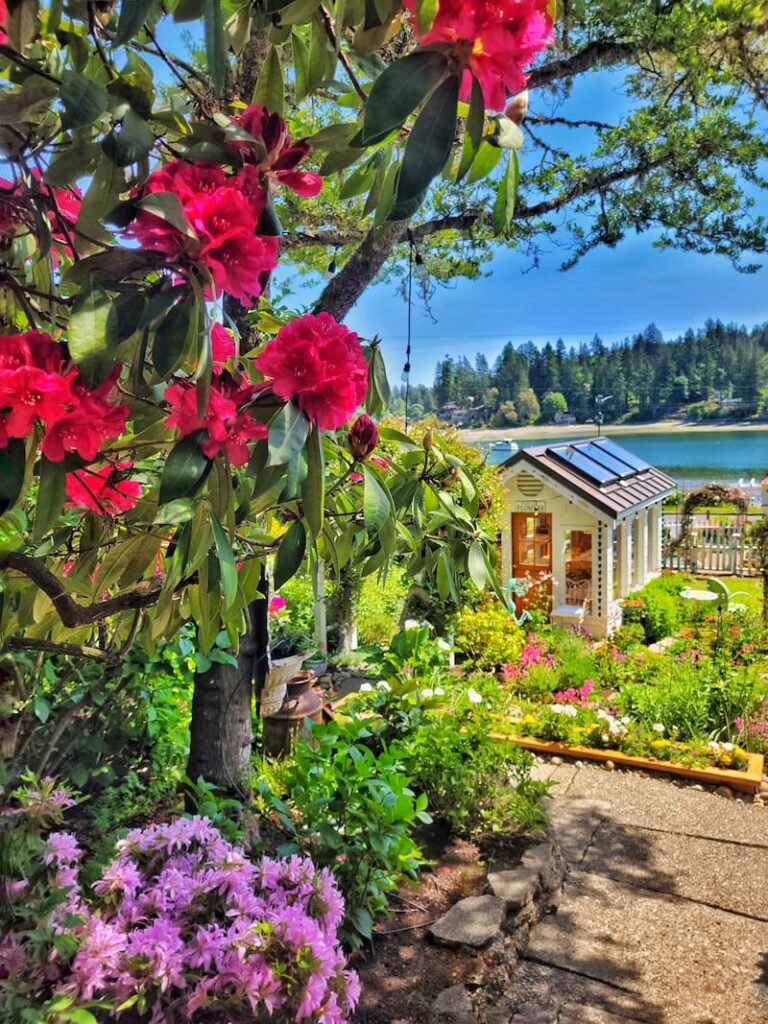
Fertilizing and Feeding Your Pacific Northwest Garden in June
Feed your roses with bone meal for added calcium and protection from insects. Fertilize flowering shrubs such as rhododendrons and azaleas.
Replace decomposed compost or mulch to maintain moisture and control weeds.
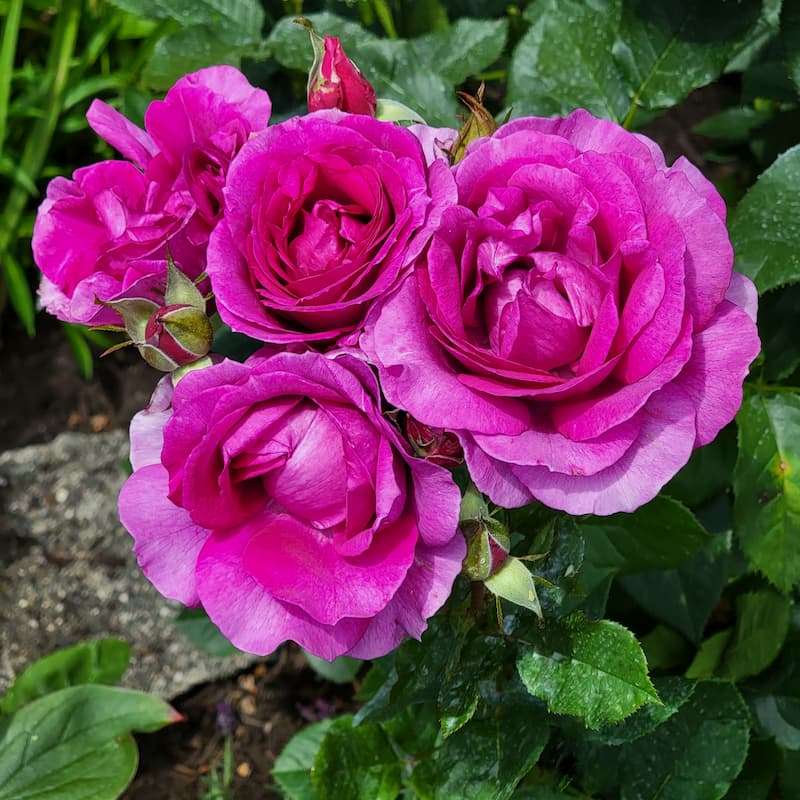
Weeding and Pest Control
Try to keep pulling any weeds as soon as they sprout to keep them from getting out of control. If you don’t have the time to spend quality time out in the garden, at least cut the weed heads off so they don’t go to seed.
Preventive pest management is one of the most important garden chores to keep your plants from being damaged by insect pests.
Roses can be a major challenge in the garden with black spots. If your roses have black spot-infected areas, remove them to prevent spreading. Spray roses with insecticidal soap to eliminate aphids, mites, and thrips.
Pick caterpillars off plants by hand. Drop them in a bucket of soapy water, or toss them out where the birds can get them.
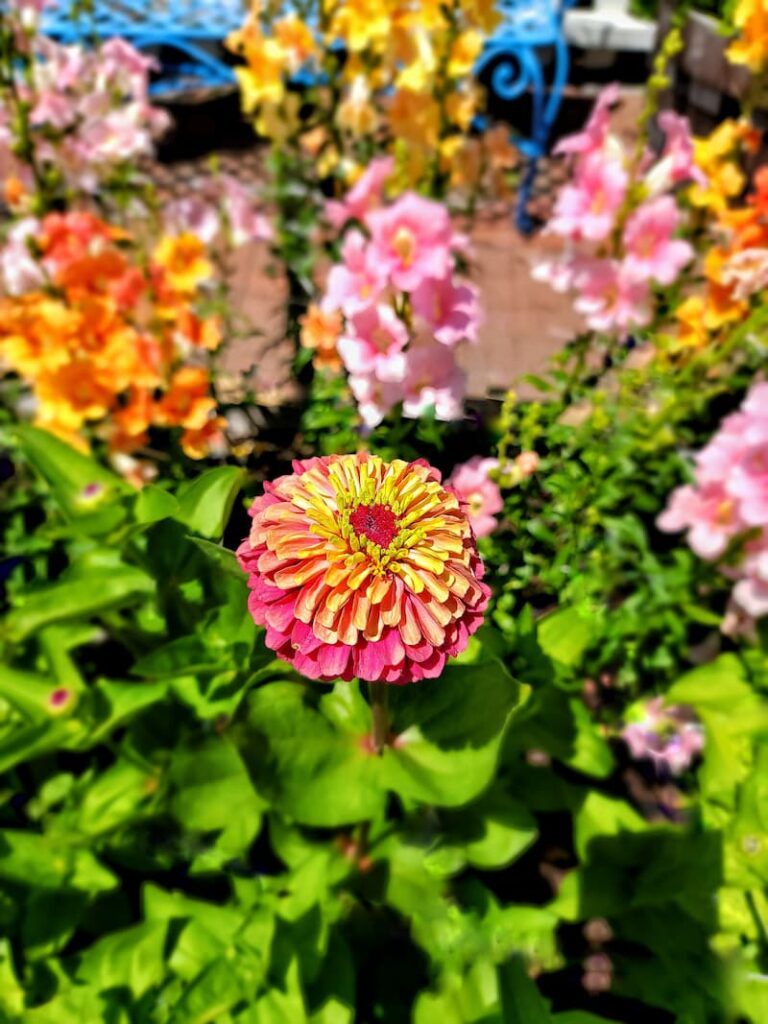
Continue with your slug and snail control. Slugs are in full force this time of year. Plants that are most susceptible to slugs, such as marigolds, hostas, dahlias, and zinnias, can all benefit from slug bait.
I use Sluggo in my garden, which is pet and wildlife-safe. However, there are more natural alternatives available as well.
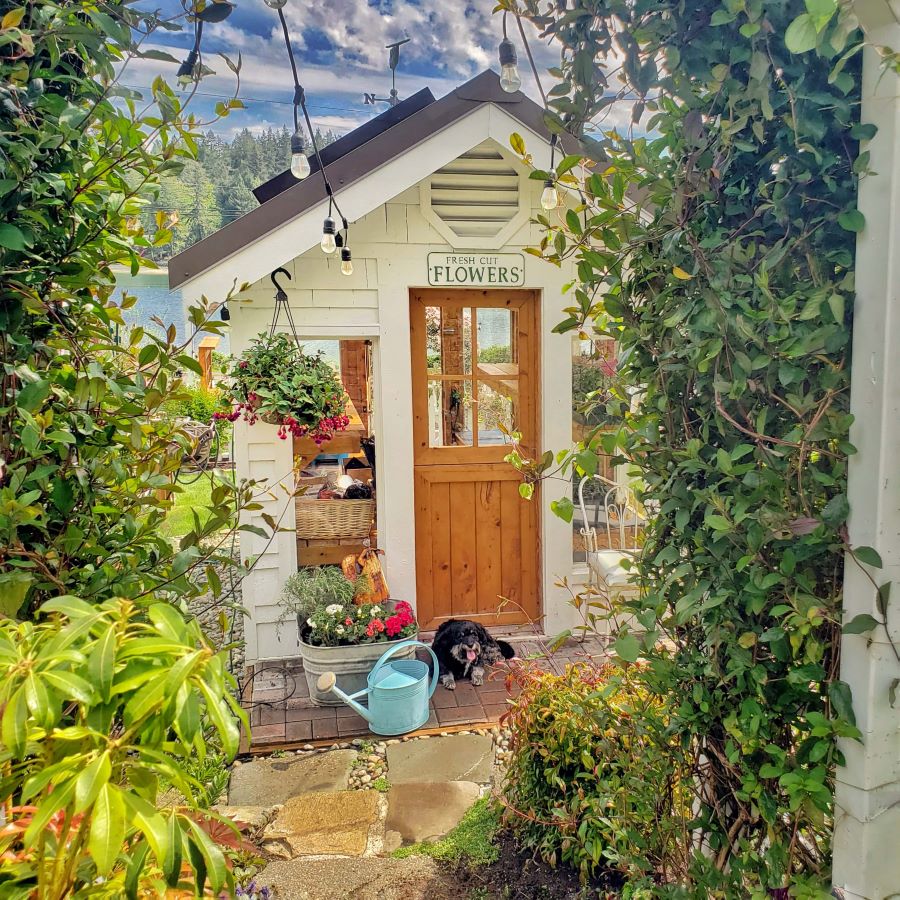
Walk Your Garden Regularly
Try to take some time every day to walk the garden. It’s a great time to…
Walking the garden as a daily routine is one the easiest ways to keep up with your gardening tasks, and it won’t seem as overwhelming.
Keep Notes on Your Garden Throughout the Season
Keeping notes throughout the season will help you when it comes time to start planning next year’s garden, You’ll be able to remember the critical issues that need to be addressed going forward.
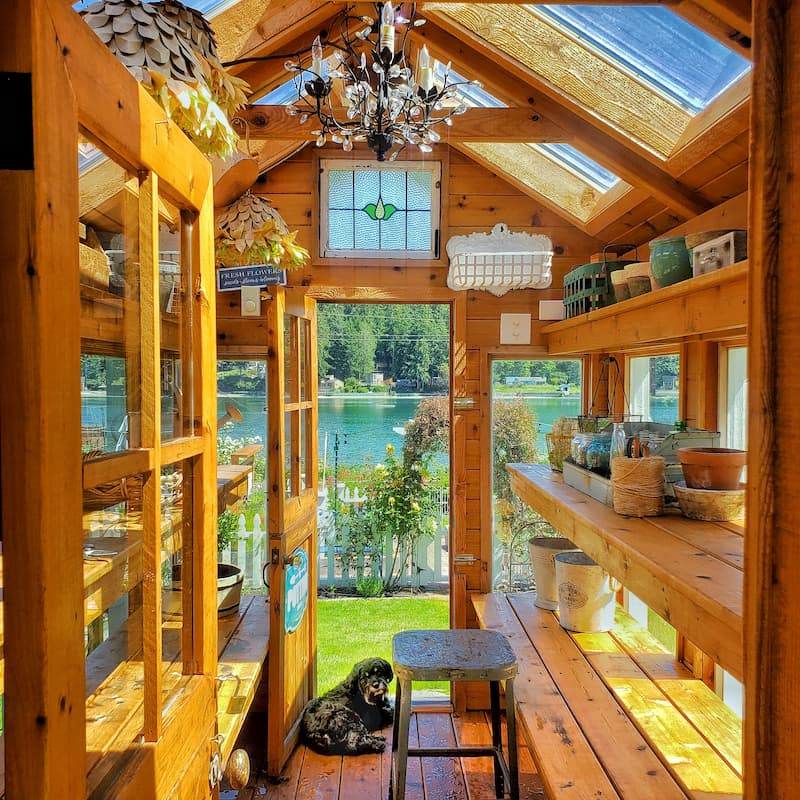
Clean Greenhouses and Garden Sheds
This is a great time to clean out your greenhouse or potting shed if you have one. Discard any dead or diseased plants. Clean pots and containers are necessary to control greenhouse pests.
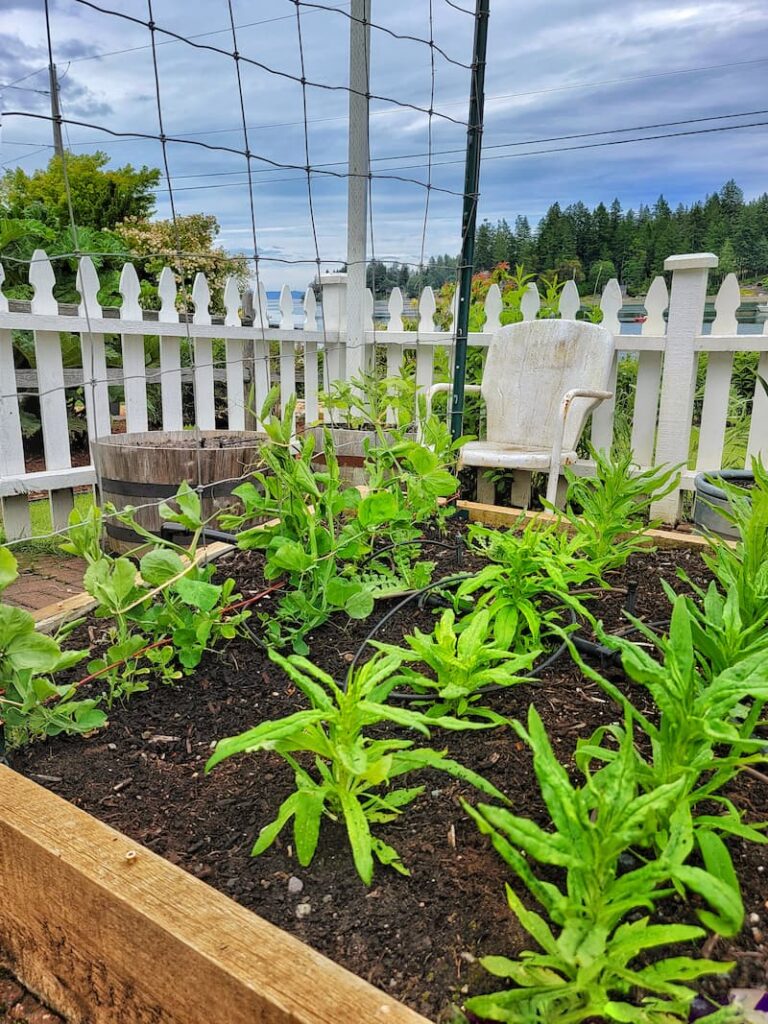
Common Questions About Pacific Northwest Gardening
What Can I Plant in June in Western Washington?
Transplant these summer crops starts as soon as possible.
Sow the following seeds directly into the soil.
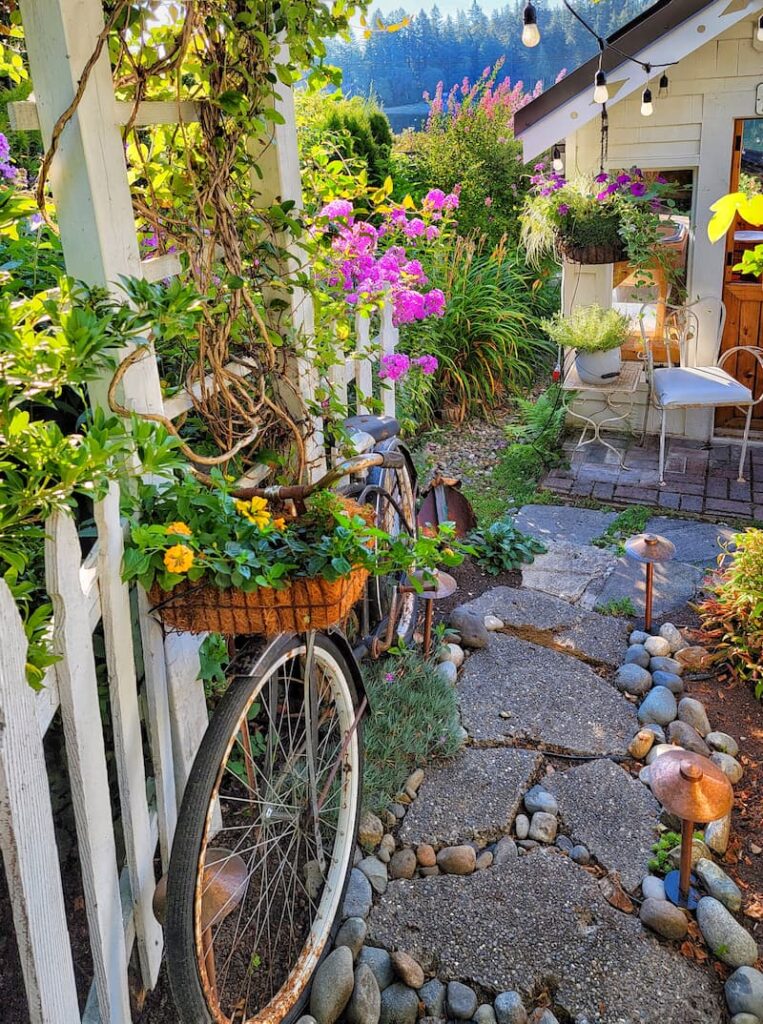
What Flowers Can You Plant in June in the Pacific Northwest?
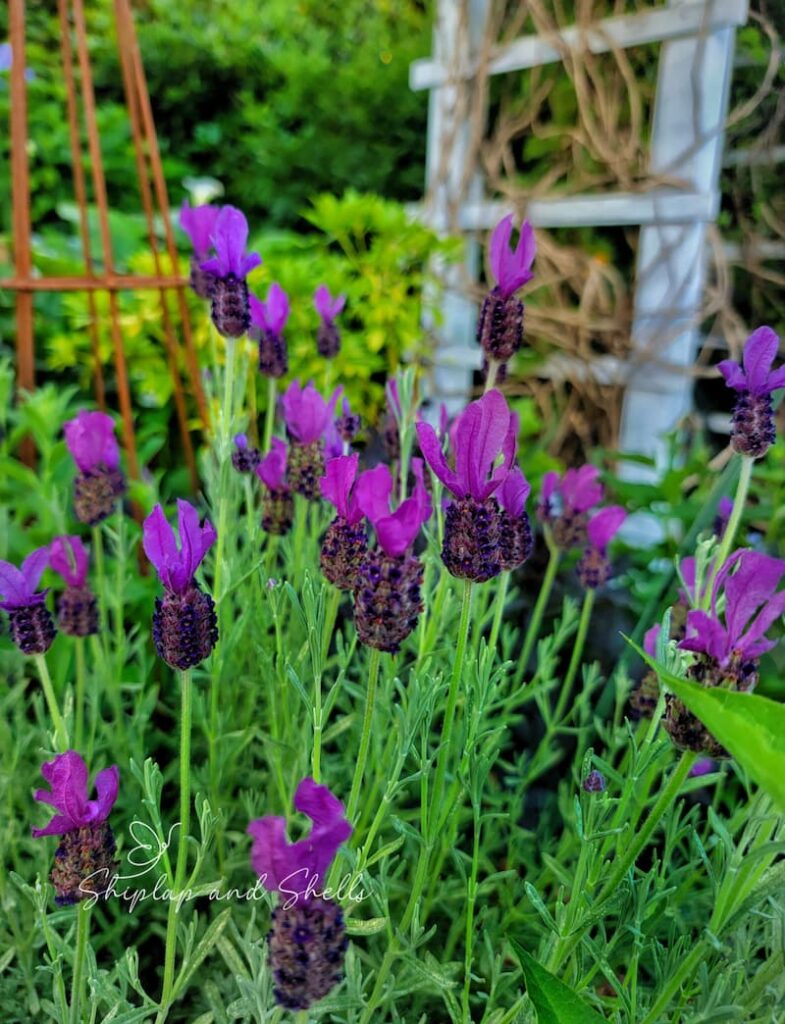
What Perennials Are Good to Plant in June?
You can still plant perennials before the heat of summer in June but it’s important to choose plant varieties that will establish successfully. Remember that new plants need a lot of care after planting them in your garden. Be sure to water the newly planted perennial deeply and add organic matter to the soil.
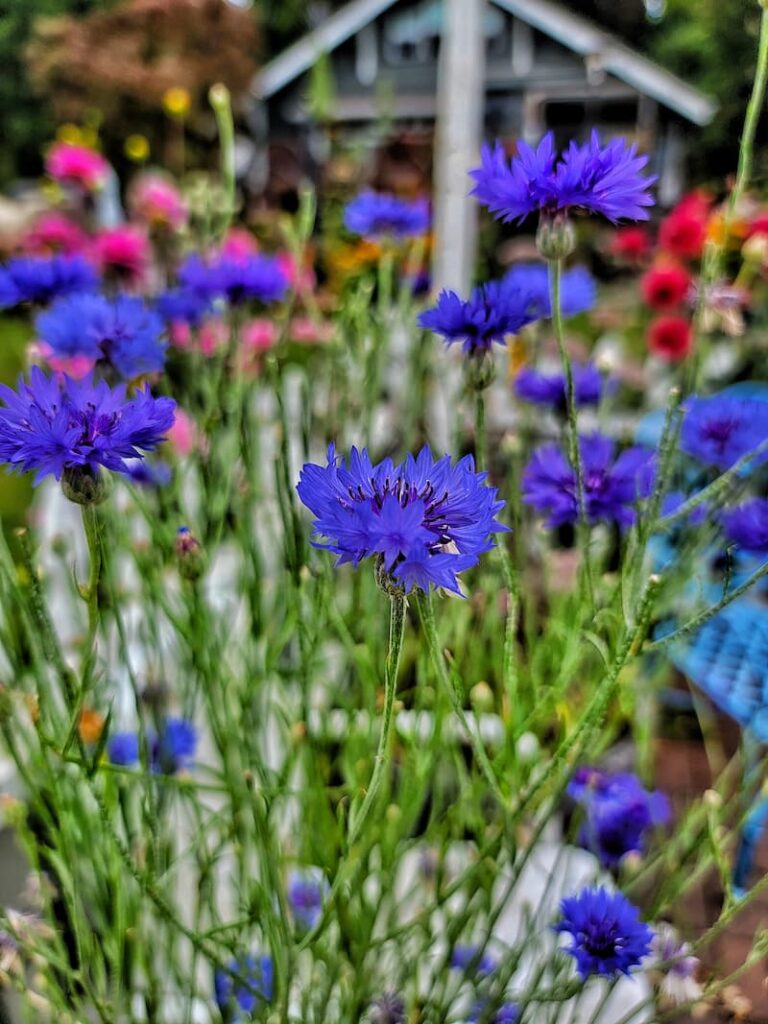
Is June Too Late to Plant Wildflowers?
Ideally, wildflower seeds are sown in the late fall to early spring when growing conditions are more favorable for germination and establishing them in the garden.
However, if you’ve missed the spring planting window, you can still try sowing wildflowers seed in June. Select wildflower varieties that are known to have success with late-season sowing or have fast germination and growth.
Some options would be cornflower, California poppy, bachelor’s buttons, and annual lupine.
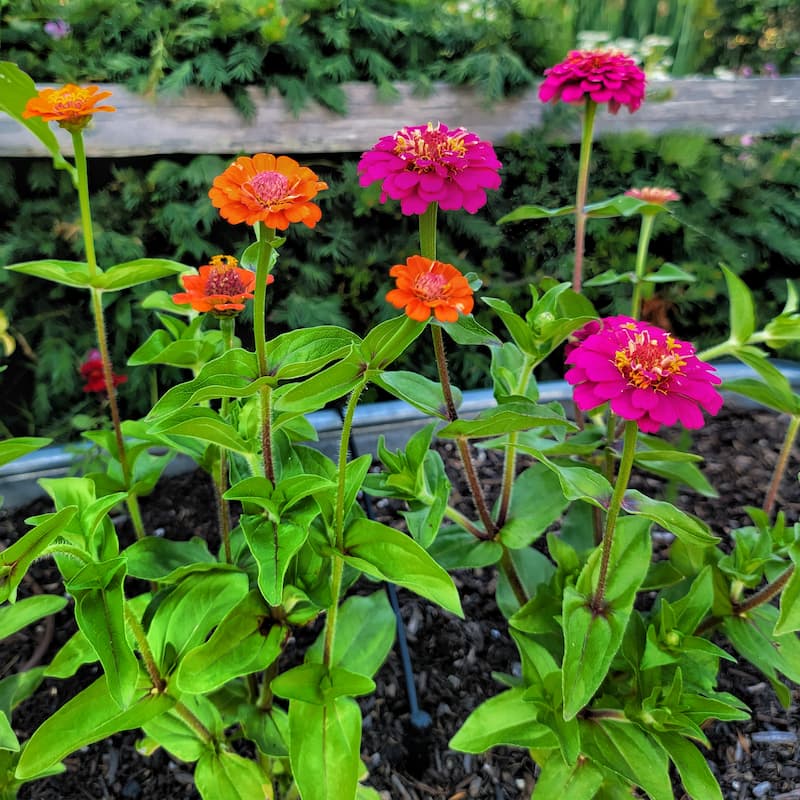
Is it Too Late to Plant Annuals in June?
You can still plant annuals in your June garden, especially if you choose fast-growing varieties that have a shorter time to mature. Examples are zinnias, marigolds, sunflowers, cosmos, and nasturtiums. These plants establish quickly and can catch up in growth during the warmer months.
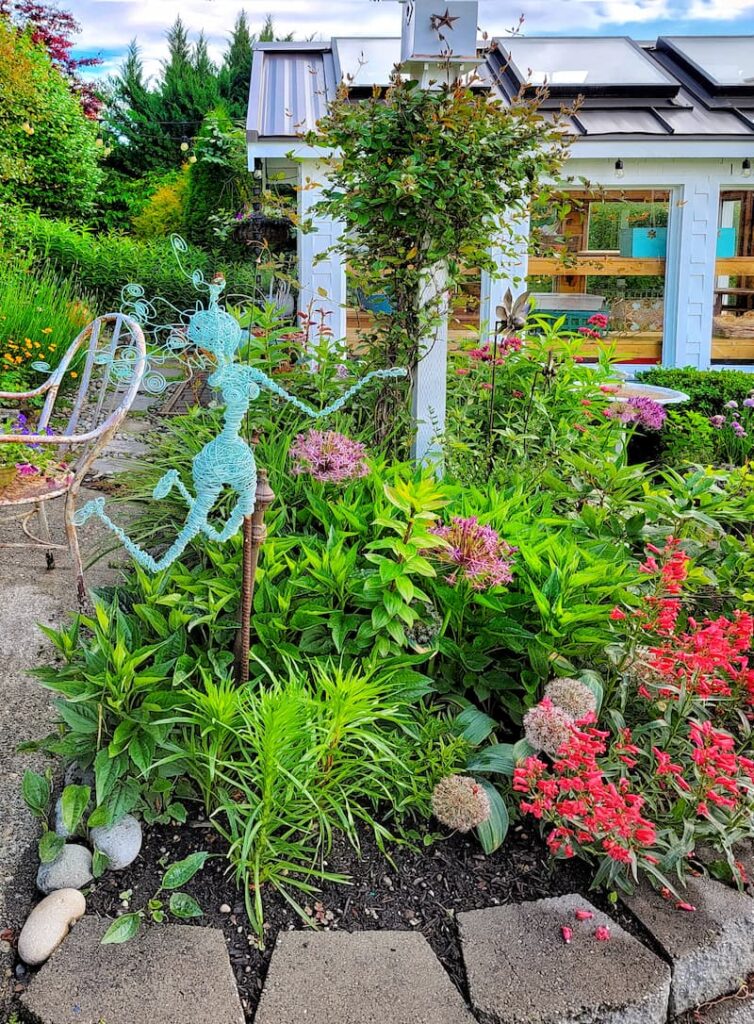
By following these June gardening tips for the Pacific Northwest region, you can ensure a thriving and beautiful garden throughout the summer months.
I hope these tips are useful when you’re in the garden for the month of June. Is the weather warming up for you? Get out there and enjoy some garden therapy!
If you have any questions or have a message, I’d love to hear from you. Leave a comment below. And be sure to share this blog post link with anyone who may find these gardening tips useful.
Until next time,
Happy Gardening!

Follow Me for More Inspiration
Shop my Amazon Storefront, my LTK sources, and my favorite home decor, garden, and lifestyle products. When you purchase from one of my links, I earn a small commission which helps me to continue sharing all the content you expect on my blog.
Be sure to follow me on Pinterest, Instagram, Facebook, TikTok and LIKEtoKNOW.it. Do you like gardening? Join my Facebook Gardening Tips & Tricks group.

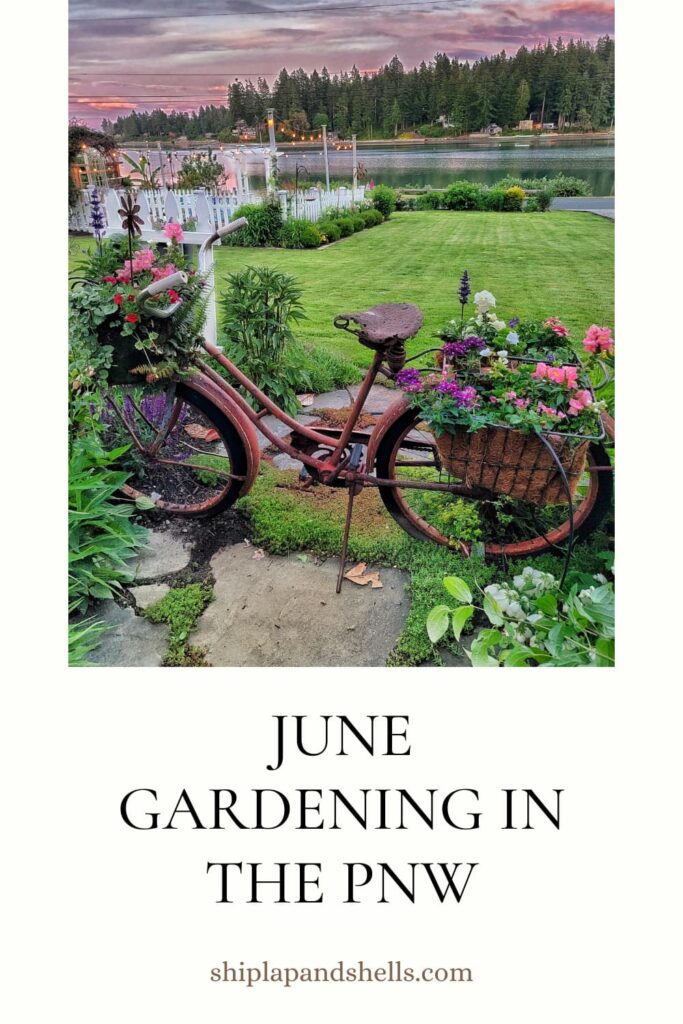

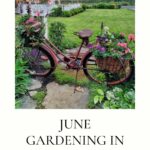
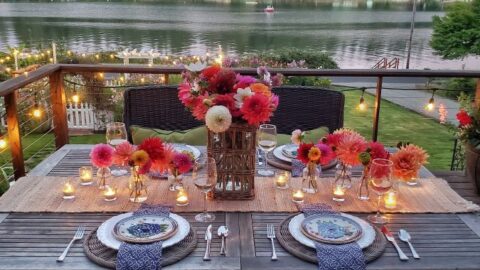
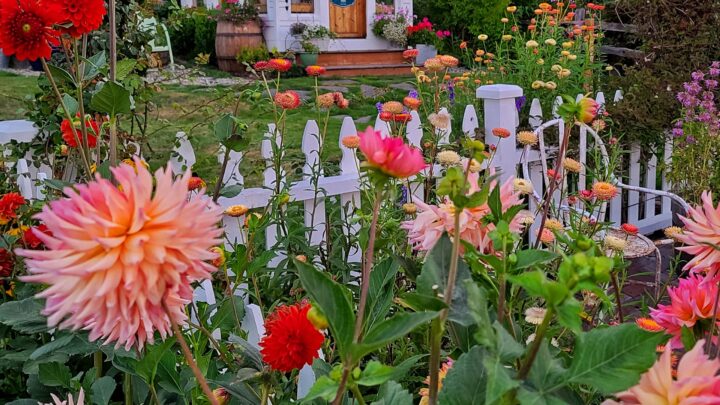
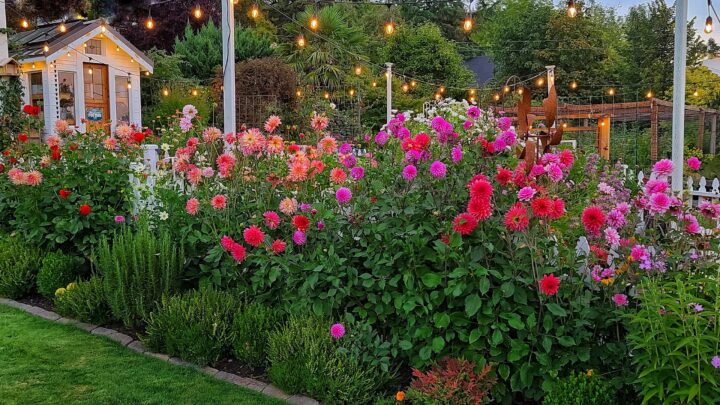
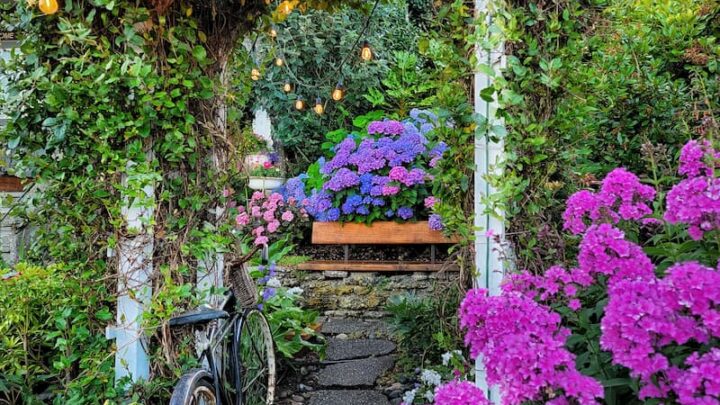
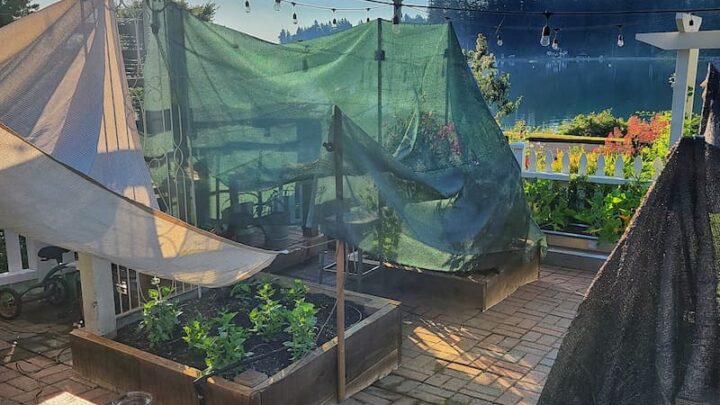
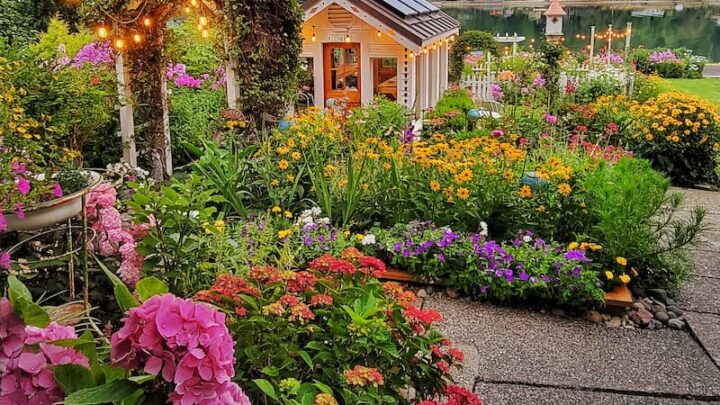
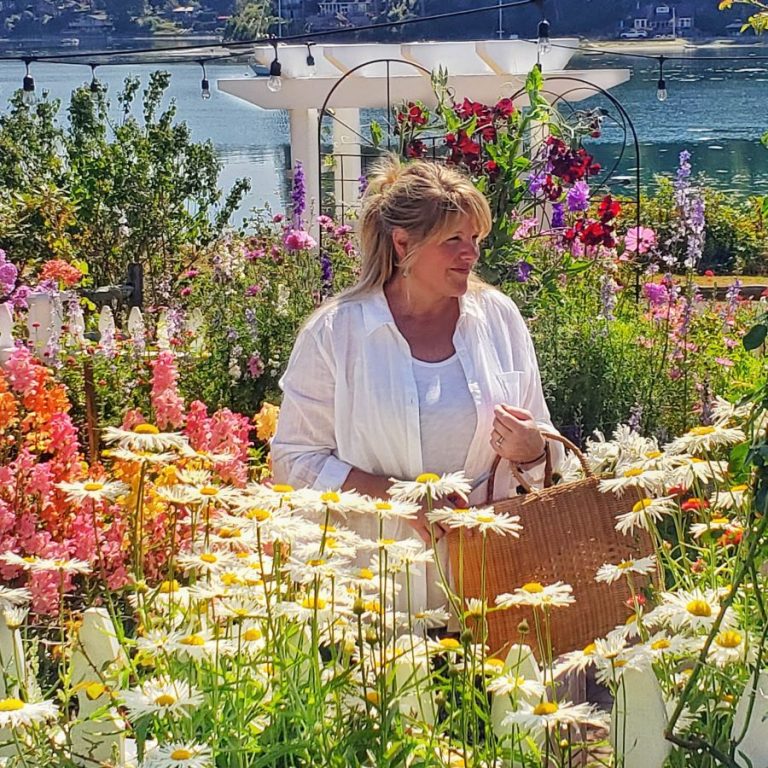
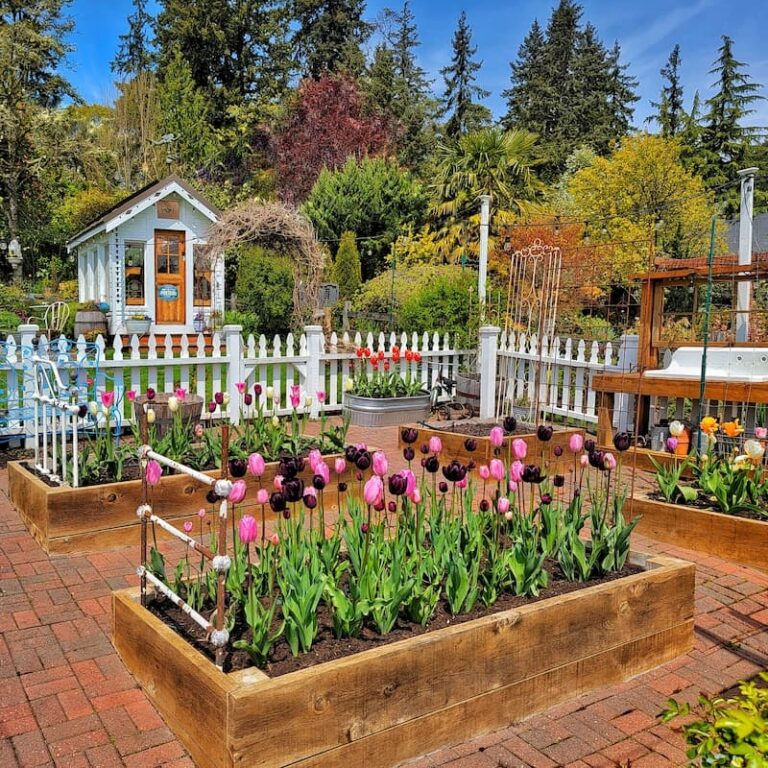
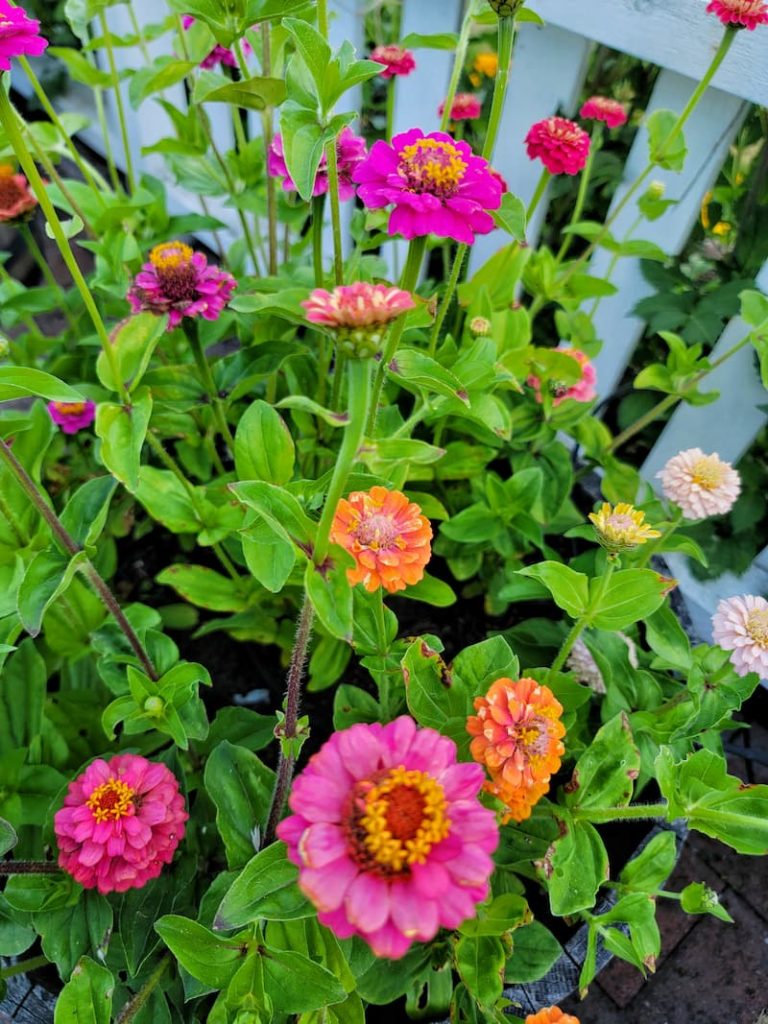
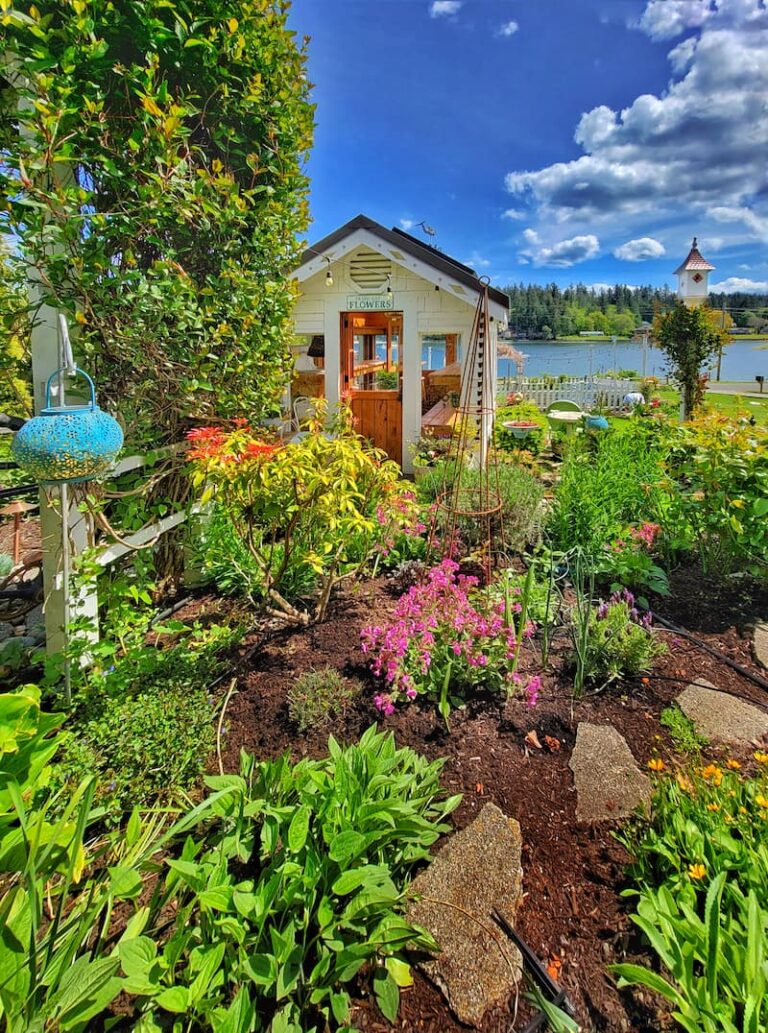
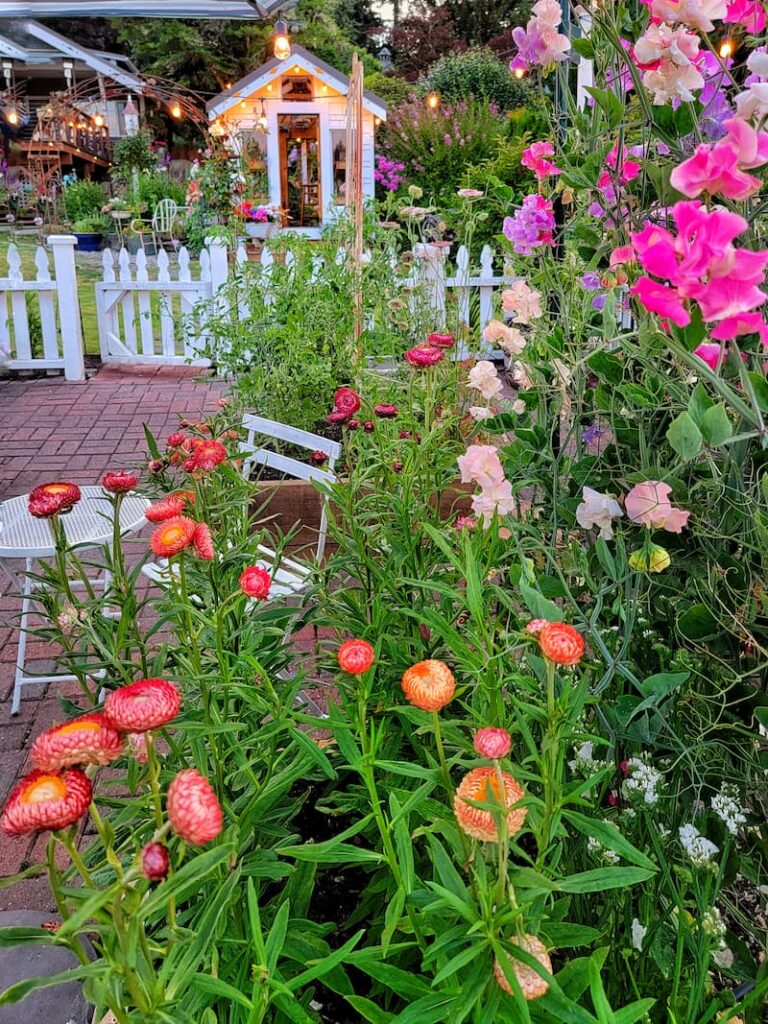
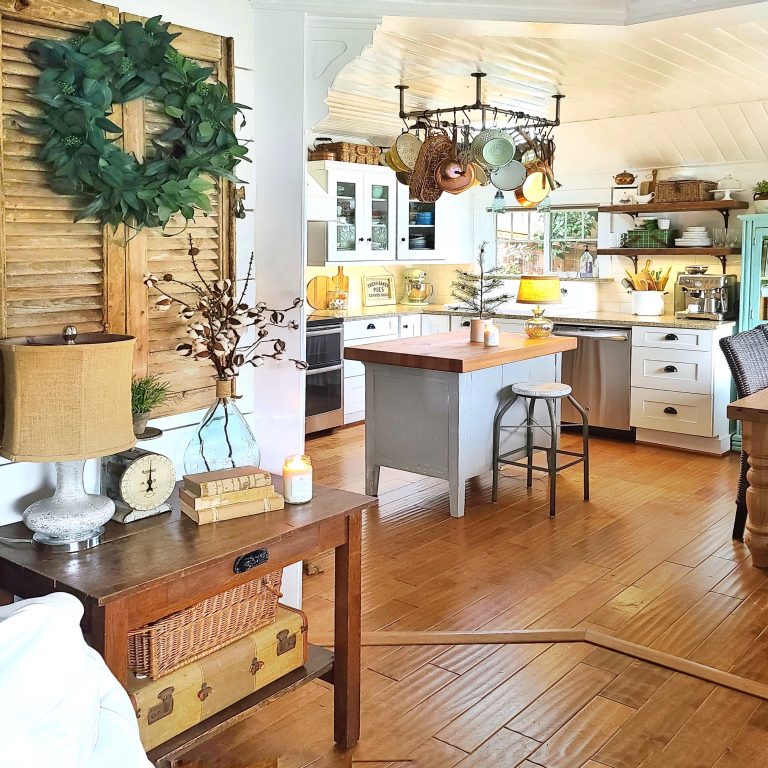
Kim,
Your gardens are amazing. My husband just said it looks like Butchart Gardens. Stunning.
These tips are very helpful Kim! Although I don’t live in the Pacific Northwest region, I really appreciate these gardening posts that you have made. I love the pictures and I also shared some of your posts with my friends. <3
Beautiful garden my friend, thank you for all of the great tips.
Great tips Kim and welcome back! Yoru garden looks amazing!!!!
Thank you so much Rachelle! That is such a sweet compliment. And yes, the PNW is such a wonderful place for gardening! I do love gardening with this amazing view!
Kim, I adore you potager and garden shed – and that view, walking out and seeing the water every day would make me feel like I was in heaven. Your zone is perfect for growing so many beautiful things.
Thank you so much Rachelle! That is such a sweet compliment. And yes, the PNW is such a wonderful place for gardening! I do love gardening with this amazing view!
Most of these tips work for me too even though I’m across the pond! Great idea to make a note of the changes you want to make in the garden – I try to do that but don’t always get around to it. Your Rhododendrons are so beautiful Kim – we can’t grow them because our soil is alkaline so I’ll just crush on yours instead! Hope you are having a lovely week!
Thank you Jayne! Soil is everything, isn’t it? I am saying goodbye to my rhododendrons now. They do not last as long as I would like. Thank you for visiting. I really appreciate it!
I’m in a totally different zone, Kim, but I love these gardening posts with all the tips and tricks. It’s so inspiring to see all the different colors and plant combinations you put together. Every bloom is looks like it should be in a magazine! Hugs, CoCo
You are so sweet CoCo. I really appreciate the compliment. I am inspired by your blog as well. It is truly one of my favorites!
Your garden is SO beautiful Kim!! My husband takes care of our roses – I’m going to tell him about bone meal! 😉 Thanks for all the tips as well as the gorgeous inspiration!
That’s so nice of you Barbara, Thank you! I probably need his help with roses. I can’t seem to stop the black spot, no matter how hard I try!